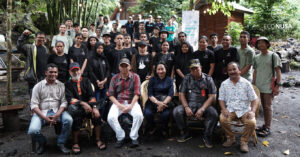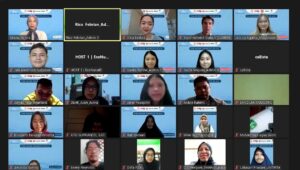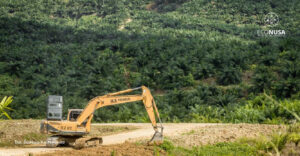
Indonesia is known as religious country with large rainforest cover. However, amidst the global climate crisis and the looming threat of deforestation, educating public on environmental issue is deemed an urgent call for interfaith leaders. Forest conservation and protection should become agenda of all religions and schools through local-content-based curriculum.
The notion came up during the workshop, dialogue and launching of the Interfaith Rainforests Initiative (IRI) held in Manggala Wanabakti, in the Ministry of Environment and Forestry (MoEF) compound, Jakarta on 30-31 January 2020.
The event involved all stakeholders and indigenous communities of 17 provinces across Indonesia including Papua and West Papua. The initiative called the interfaith leaders to save forests and their ecosystem due to global climate crisis.
The presence of some experts and interfaith leaders enriched the substances dealing with biodiversity, social and economy aspects as parts of livelihood support and natural disaster prevention. Forest fires, climate change and government policies on both primary and secondary forests protection were also parts of the discussion.
They also stated that climate change mitigation could hardly overlook the role of customary communities that safeguard the nature and forests through their local wisdom practices from generation to generations. The indigenous people deserve to have recognition and customary rights given the fact that they defend and save the remaining forests.
The launching of Interfaith Rainforest Initiative was followed up by the establishment of IRI Indonesia Advisory Council following the event in the MoEF. The Advisory Council members consist of religious organizations, NGOs, donors, United Nations, and academic. Those organizations are Inter Religious Center (IRC), Indonesian Ulema Council (MUI), Nahdlatul Ulama (NU), Muhammadiyah, the Indonesian Communion of Churches (PGI), Bishops Council of Indonesia (KWI), Parisada Hindu Dharma Indonesia (PHDI), Indonesian Buddhist Association (Permabudhi), the Confucian Supreme Council of Indonesia (MATAKIN), the Indigenous Peoples Alliance of the Archipelago (AMAN), United Nations Environment Programme (UNEP), Rainforest Foundation Norway (RFN), EcoNusa Foundation and CSF Indonesia.
“The initiative here is a plausible step. We need a breakthrough from many sides, including the initiatives among interfaith leaders in Indonesia so as to give a significant leverage to raise collective awareness to save the remaining forests in Indonesia,” said Bustar Maitar, CEO and Founder of EcoNusa Foundation, who happens to be a member of the IRI Advisory Council on February 1, 2020, in Jakarta.
IRI has actually been established in Oslo, Norway, on June 2017 involving religious leaders of Christian, Muslim, Jewish, Buddhist, Hindu and Taoist jointly with indigenous community from five tropical countries. The preliminary trigger is to promote the rights of indigenous peoples as the guardians of the forests.
As an international alliance, IRI was formed to promote religious leaders and moral urgency to slow down deforestation and its adverse impact in tropical areas by shifting the priorities and policies of world leaders. Asian, African and South American rainforests are the main targets here.
The convention among stakeholders and religious leaders in IRI resulted in a joint declaration. The declaration essentially is an initiative to mobilize religious community and indigenous people, raise awareness on forest destruction, urge the government to protect forests and indigenous people’s rights, call for private sector’s accountability, and recover forest ecosystem with reference to the 2015 Paris Agreement.
Writer: Leo Wahyudi and Muhammad Farid







